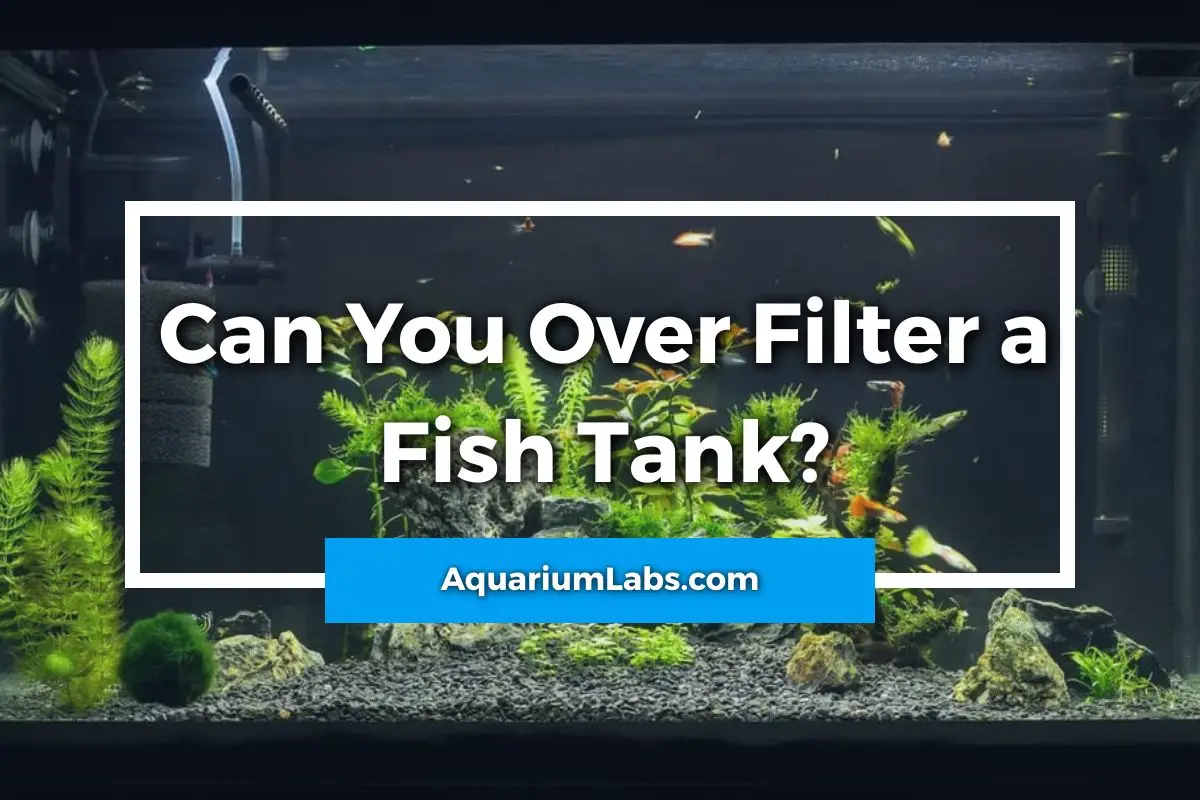Since fish can’t breathe air, aquariums are a very technology-oriented hobby. From lights to filter systems, there is a lot of mediation needed to help keep your wet pets alive and happy!
But sometimes, choosing filters gets a little confusing. Since a little filtration is a good thing – what about a lot more? Can you over filter a fish tank with many filters – or too much of one?
Can I Over Filter My Fish Tank?
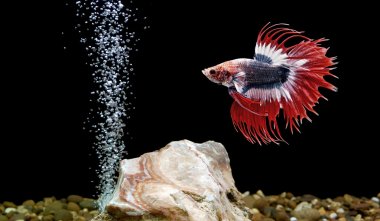
Too much filtration is usually not a problem, but it can arise in rare cases. Sometimes, it is even a good thing! So let’s take a closer look at whether over filtering is an issue for your fish keeping!
Using a Large Filter on a Small Aquarium
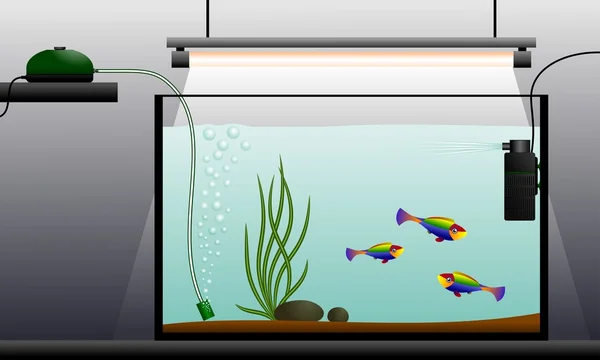
Water flow is the main reason why a large filter can be a problem for small aquariums. When you shop for a new filter, you’ll notice that they have ratings for a particular tank size or range of tanks. A filter rated for 55 gallons should not be placed on a 10-gallon aquarium. Why not? Isn’t more aquarium filtration better?
The problem is that the pump attached to filters rated for large tanks will kick out water with excessive force. A large tank will disperse the flow quickly due to its volume; only the region right around the outflow will experience strong turbulence.
Too much flow from a pump that’s too strong for your tank can exhaust small fish that have to fight the continually generated current. Their food gets blown all over your new tank.
And poor swimmers, especially long-finned fish like bettas and guppies, can have their fins caught in the current. This results in them being smashed against tank decorations and aquarium glass, likely injuring them.
Little to No Extra Biological Filtration Capacity
Another reason why over-filtering is bad is that the biological filtration capacity of your tank does not improve all that much. Sure, you gain extra chemical filtration capacity – the ability to use agents like activated carbon to pull organic waste out of the water. And your mechanical filtration chamber (sponges, cotton, and other physical filter media) may also be larger.
But the nitrogen cycle is reliant on how much food for your bacteria there is. If your tank is stocked appropriately, then there is only so much food in the form of ammonia and nitrite for your beneficial bacteria to consume.
Adding extra biological filtration capacity only spreads your bacteria thinner – which isn’t a bad thing – but not helpful, either. It takes more food to get more good bacteria, not simply more space!
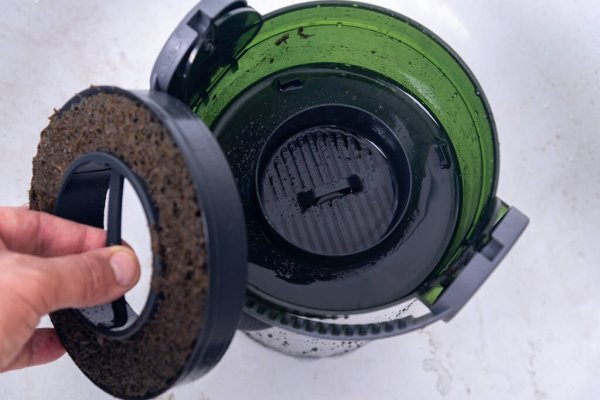
When is Extra Filtration a Good Thing?
Sometimes having extra filtration is a good thing! In these cases, over-filtering a fish tank is helpful.
Current Loving Fish
Do you have pets that crave water movement? Convict Cichlids, Dennison’s Barbs, Giant Danios, and Acropora Coral are just a few animals that love good flow around their aquarium. Filtration systems provide some, but over-filtering with one larger unit or using multiple filters can add extra current.
Using more than one filter on a fish tank has several benefits! By using multiple filters, you can direct water flow in ways that one filter would be too limited to achieve.
On the other hand, there are devices that do the job better than most filters. Powerheads and wave generators are dedicated devices meant to create current. They are more flexible and often create stronger, more focused currents compared to using, say, two filters.
But many aquarists prefer being able to add extra filtration capacity. Since filters create both flow and current, and more filter media is never a bad thing, over-filtering is a popular option!
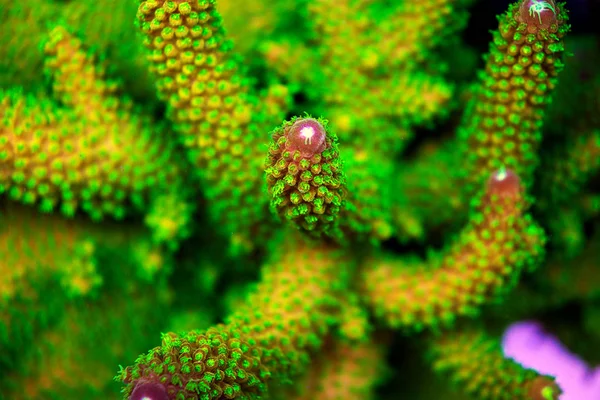
Overstocked Aquariums
It is more difficult to over filter a tank that is heavily stocked with fish. Perhaps you are new to fish keeping and added too many fish to your first tank. Or you have a holding or hospital tank that is almost always overstocked.
If a system is beyond maximum capacity for the tank volume, then adding two filters or more is a good way to keep animals healthy. You really should not be keeping fish in an overstocked tank long-term, though.
Social stress accumulates, and there is no room for territories, free swimming, avoiding aggressive tank mates, and other natural behaviors. Overstocked aquariums should always be a short-term issue for hobbyists and a major one only for retailers and distributors, who have systems in place for this.
You may not need an extra power filter, though. Even adding a sponge filter can help with all of the other fish adding toxic ammonia to your tank. A sponge filter has the added advantage of not creating too much flow, the main problem of an over filter addition.
A sponge simply provides a home for beneficial bacteria, extra mechanical filtration (screening), and even a bit of aeration since they usually run attached to air pumps!
Besides adding an extra filter, you should also perform regular water changes to further reduce ammonia levels. Your bacteria only work so fast, and fish will become stressed in the meantime by high concentrations of toxic chemicals.
Do I Need a Filter in a Planted Tank?
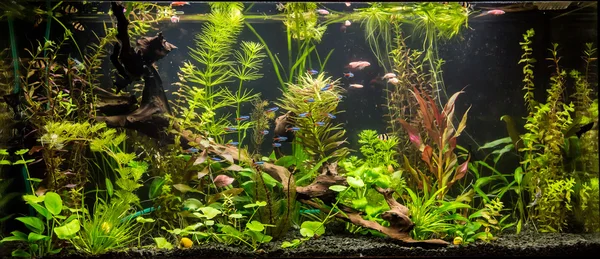
If you have a fish tank full of live plants, then a filter is of less importance. In fact, it can even be a problem, effectively causing over filtering. Plants feed on ammonia, nitrite, and nitrate, just like your good bacteria do.
They also make use of free-floating organic molecules that would normally accumulate and need to be removed by a filter or water changes. Too much filtration sucks up available nutrients before live plants can use them.
That isn’t to say you don’t need a filter on a planted tank. Aquarium plants don’t usually suck up nutrients right away, so they can still cause stress to fish if they reach toxic levels. Only that you definitely don’t want to over filter if keeping live plants since fish pollutants are plant fertilizers.
There are systems where the live aquatic plants can actually replace your filter entirely! Walstad aquariums are the most common design, using a soil bottom to encourage the growth of both plants and beneficial bacteria.
Water flow is still recommended in this system, but the soil and plants act as a living biological, mechanical, and chemical filter, effectively replacing your normal filter!
These tanks do need to be carefully planned, using the right plants and lighting levels. Walstad aquariums are always lightly stocked with fish as well.
Wrapping Things Up
Can you over filter a fish tank? It is possible if you run with two filters or more. Extra filtration does not always mean your fish will be healthier, especially if your tank is not overstocked in the first place.
Strong filters can also batter around weak swimmers with current, not to mention disrupt and suck up food before it gets eaten.
Even when you need extra filtration, say from overstocking a fish tank, it still does not address other problems like aggression and stress from overcrowding. So unless there is some very specific reason you need extra filtration, it is better not to over filter a fish tank!
Frequently Asked Questions on Over Filtering
Is it OK to put 2 Filters on a Fish Tank?
Yes, so long as the filters are both on the smaller side, so they don’t make it too difficult for your fish to swim or feed.
Can a Filter be Too Strong for a Fish Tank?
Yes. Strong filters can create currents that are dangerous for small fish or weaker swimmers.
How Many Times Should a Filter Turn Over an Aquarium?
Six to ten times the volume of the aquarium per hour is a good turnover rate for most systems!

